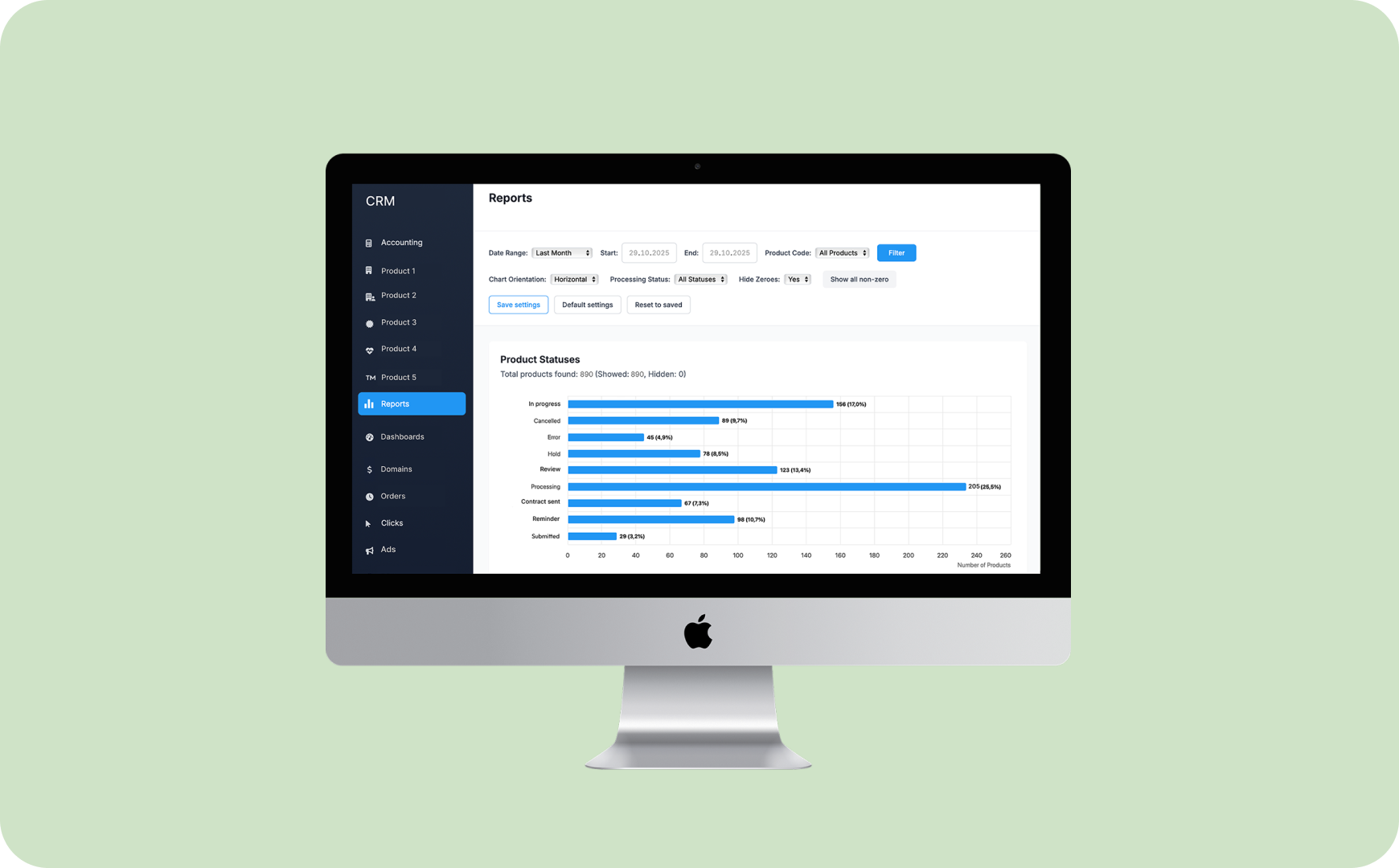CRM Optimisation Backed by Automation QA
We provided end-to-end QA testing and custom CRM optimisation of a growing e-commerce platform. Our goal was to enable the company to handle higher transaction volumes with fewer failures. We have improved web reliability and introduced QA automation to speed up releases.
About the Project
Client’s Needs
Where We Stepped In
The customer-facing websites processed payments in real time, so our task was to make the system avoid even minor glitches that could disrupt user journeys or lead to lost revenue.
The CRM system also relied on multiple third-party APIs for payments, compliance, and customer support. Any failures in these integrations had to be detected and handled accurately to avoid customer operational errors.
Our team joined the project at a critical moment when the system was already in action. The task was to improve performance, resolve CRM misalignments, and make test coverage consistent. We focused on three priorities: optimising the CRM, streamlining website flows, and automating high-risk processes.
CRM testing & optimisation
We performed both manual and automated testing of the custom CRM to cover front-end and back-end flows. The system was built on a Java/.NET back end and React front end, supported by MongoDB as the main database.
The platform is a centre for daily business processes, so we had to make every new update synchronised across the CRM and connected websites.
Our QA team worked with Cypress, JMeter, and MongoDB via CLI to validate stability and performance. Manual testing covered memberships, transactions, and CRM workflows. We also used Swagger to document and verify APIs. To optimise regression cycles, our engineers introduced Cypress automation, reducing the time required for testing.
Website testing
The websites were revenue-critical as they managed memberships and real-time transactions. We carried out front-end and back-end website testing to identify UI/UX bugs, functional issues, and database inconsistencies.
We also checked API and DB consistency by testing how user actions were reflected in the MongoDB database and CRM dashboards. With automation testing, we built repeatable scenarios for checkout, payment verification, and user account updates. These practices flagged issues before they could have reached end users, which directly improved customer experience.
Automation QA
One of the key challenges involved recurring CI/CD pipeline crashes in GitLab, which disrupted automated testing and delayed releases. We analysed error logs and pipeline behaviour, rebuilt the GitLab YAML configuration to align with updated global settings, and implemented a new build-and-test algorithm supported by dedicated runners.
Within this phase, we also enhanced Cypress-based testing, connected it to GitLab pipelines, and introduced performance testing via JMeter. This approach restored pipeline stability and created a path for a more resilient automation workflow.
API & service integrations
The platform depended on several third-party APIs for payments, customer management, and compliance processes. Our team worked with Konnektive, Cardinsight, Zendesk, and NWRA. Thus, data exchange, error handling, and system responses were validated across all integrations to ensure that failed transactions and compliance checks were correctly logged and synchronised with the CRM.
We used Swagger for documentation and validation for accurate communication between systems. Email notifications and workflow triggers were monitored via Mailgun to bring full-cycle visibility and reliability.
Business Impact
The improvements allowed the e-commerce platform to have a stronger, more reliable foundation for everyday operations. Regression cycles became faster, and new releases reached production without the delays and uncertainty.
The synchronised and transparent CRM now provides support teams with accurate data and eliminates time-consuming manual fixes. With critical processes automated and pipelines stabilised, the company can focus on scaling and innovation.
As a result, website reliability improved, customer trust increased, and what once could have caused daily inconveniences was now a solid framework for sustainable growth.